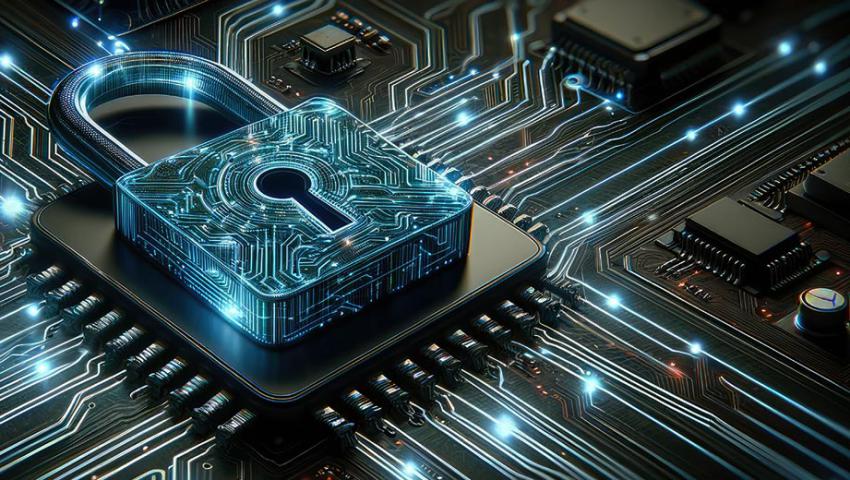
The Privacy Paradox: Why Your Desktop PC Offers Superior Control Over Your Data
In an era dominated by mobile technology, the desktop computer often feels like a relic of a bygone era.
The common assumption is that newer technology is inherently more secure. After all, mobile operating systems were built with modern threats in mind. However, this perspective overlooks a crucial distinction: the difference between security and privacy.
While security is about protecting your device from external threats, privacy is about protecting yourself from the device itself. And when it comes to true, user-driven control, the "antiquated" desktop PC holds some surprising and powerful advantages. This article explores why desktops, despite being less secure out-of-the-box, can be configured to offer a level of privacy and lockdown security that mobile devices simply cannot match.
1. The Physical Advantage: Tangible Hardware Control
The first and most fundamental advantage of a desktop is its physical accessibility. A smartphone is a tightly sealed brick of glass and glue, forcing you to trust the operating system when it claims to have disabled the microphone or camera.
With a desktop or even a modular laptop, you hold the physical power.
- Hardware Kill Switches: Users can install physical switches that sever the connection to components like webcams and microphones on demand.
- Component Removal: Don't trust your internal Wi-Fi card? You can physically remove it and rely solely on an external USB adapter that you unplug when not in use.
- No Hidden Sensors: Unlike mobile devices packed with a plethora of sensors (accelerometers, gyroscopes, barometers), a desktop's hardware is explicit and user-controlled. You can’t be tracked by a sensor that isn’t there.
This ability to enforce hardware restrictions provides a foundational layer of privacy that no software can bypass.
2. Fort Knox on Your Desk: Advanced Sandboxing and Isolation
Sandboxing—the practice of isolating applications so they cannot interfere with each other or the system—is a key feature of mobile security. However, desktop operating systems offer a far more robust and versatile toolkit for isolation.
While mobile OSes rely on a single layer of kernel-level controls, desktops provide multiple, interoperable layers of defense:
- Simple Jails: Time-tested systems like BSD jails offer basic, low-resource process isolation.
- Kernel-Level Boundaries: Desktops employ the same kernel permission boundaries found in mobile systems.
- The Gold Standard: Virtual Machines (VMs): For maximum security, applications can be run inside a complete virtual machine.A VM is a software-emulated computer with its own OS, completely unaware of the host system. An application that compromises the VM remains trapped, unable to access the underlying machine. This is the technique used by ultra-secure operating systems like Qubes OS, which virtualizes every single application.
3. The Keys to the Kingdom: The Power of Root Access
Perhaps the most significant difference is root access. Mobile operating systems are intentionally designed to never grant you, the owner, full administrative privileges. This "walled garden" approach limits your ability to monitor or disable invasive data collection. On a desktop, root access is your right. With it, you can:
- Monitor Everything: A single command can show you every open network connection, the destination of your data, and the processes involved.
- Terminate Rogue Processes: If an application is sending data without your consent, you have the power to shut it down instantly.
- Enforce File Access Rules: You can block any unwanted access to your personal files at the system level.
This level of transparency and control is simply unattainable on a standard mobile OS, where you are always a guest on your own device.
4. Trust, But Verify: The Open-Source Advantage
Mobile ecosystems funnel users through centralized app stores. While this offers a degree of safety, it’s not foolproof—with millions of apps, thorough code review by Apple or Google is impossible. You are ultimately trusting a black box.
Desktops, particularly those running Linux, make it far easier to compile software directly from its open-source code.This is the ultimate privacy protection, akin to having a full list of ingredients for your food. When the source code is open for public audit, anyone can review it for malicious or privacy-invading behavior. By compiling it yourself, you ensure the code you reviewed is the code you run.
Conclusion: Your Data, Your Choice
While a mobile device offers excellent security with minimal effort, it comes at the cost of control and privacy. A desktop, on the other hand, puts the user in the driver's seat. Achieving this higher state of privacy and security requires more effort, knowledge, and deliberate configuration. But for those who value true ownership of their digital lives, the desktop remains an unparalleled guard tower in a world of pervasive tracking. The first step is knowing what's possible—the next is deciding the right balance for you.

The Tan
Leave a comment
Your email address will not be published. Required fields are marked *

